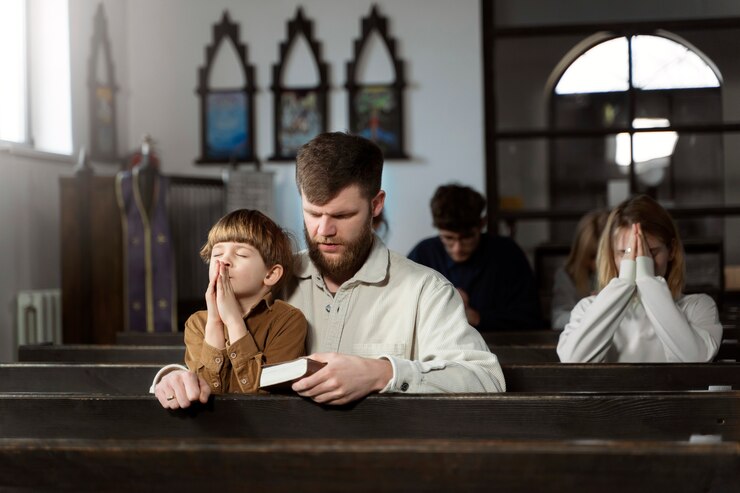The question “Is church a scam?” is bold and provocative, sparking intense emotions and reactions from people on different ends of the religious spectrum. For some, the idea of associating a place of worship with deception seems offensive or absurd. For others, this question might resonate, particularly if they’ve had negative experiences with organized religion. To answer such a sensitive question fairly, we need to explore the church’s role from multiple angles—historical, financial, social, and spiritual.
Understanding What a Scam Is
At its core, a scam involves deceit, manipulation, and exploitation for personal gain. A scammer typically promises something of value but fails to deliver, all while enriching themselves at the expense of others. Applying this definition to churches would mean suggesting that they operate under false pretenses, collecting money or time from their congregants without delivering the spiritual, emotional, or social value they promise.
But does this definition fit the church as an institution? Not universally. While some people may view the church through this lens, the reality is far more complex.
The Church’s Historical Role
Throughout history, churches have played a crucial role in shaping societies and cultures. From cathedrals to small local congregations, they’ve been places of worship, community, learning, and refuge. Many charitable institutions, educational systems, and hospitals were originally established by religious organizations. Churches have, historically, been spaces that provide social, emotional, and even material support to their communities.
That being said, history also reveals instances where religious institutions abused their power. In the Middle Ages, for example, the Catholic Church’s selling of indulgences (promises of reduced punishment for sins in exchange for money) was one of the key triggers of the Protestant Reformation. Many saw this as a clear example of exploiting believers’ faith for financial gain.
Financial Transparency and Misuse of Funds
One of the most frequent accusations against the church is its use of financial resources. Critics point to lavish lifestyles of some religious leaders, megachurches with enormous budgets, and questionable financial practices as evidence of churches potentially being exploitative. In some cases, these criticisms are valid. High-profile scandals involving embezzlement, misuse of charitable donations, and financial mismanagement have tarnished the image of some churches.
However, it’s also important to recognize that many churches operate with financial transparency and integrity. A significant portion of their funds often goes toward maintaining facilities, supporting clergy and staff, and financing charitable outreach programs, including food banks, shelters, and educational initiatives.
Not all churches are created equal. While some may be driven by financial gain, others operate in line with their mission to serve the community and foster spiritual growth. A blanket statement that all churches are a scam fails to account for these nuances.
The Social and Spiritual Value of Church
For millions of people worldwide, churches provide an irreplaceable source of spiritual nourishment, moral guidance, and community support. Churches often serve as places of solace during life’s most difficult moments, including death, illness, and personal crises. The spiritual value of the church for these individuals cannot be easily quantified, and it certainly goes beyond the transactional framework of a scam.
In addition to spiritual benefits, churches often serve as social hubs where people find friendships, build networks, and participate in community-driven activities. Many churches engage in philanthropy and volunteer work, addressing the needs of the poor, marginalized, and vulnerable. For these reasons, reducing the church’s role to merely a money-making scheme ignores the deep, positive impact it has on many people’s lives.
The Role of Individual Responsibility
When asking whether the church is a scam, it’s crucial to distinguish between institutional actions and individual experiences. People come to church with different expectations. Some seek spiritual growth, others seek community, and still others may seek comfort or guidance. Whether or not someone feels “scammed” may depend on how well their expectations align with the church’s mission.
Some people may feel disillusioned if they experience hypocrisy, judgment, or exclusion within a church setting. This disconnect between expectation and reality can lead to feelings of betrayal, particularly if they believed the church would be a place of unconditional acceptance and moral integrity. In these cases, individuals may perceive the church as having “scammed” them out of their time, energy, or money.
Scam or Imperfect Institution?
At the end of the day, the church is a human institution, subject to the same flaws and imperfections as any other. While there are certainly examples of corruption and abuse, it’s important not to paint all churches with the same brush. Many religious institutions genuinely strive to serve their communities, offer spiritual guidance, and make a positive difference in the world.
The label of “scam” may apply in specific circumstances where exploitation or deception is evident, but calling the entire institution a scam is an oversimplification. Just like any other large, multifaceted organization, churches have their successes and failures. Some people may walk away feeling enriched and supported, while others may leave feeling disappointed or disillusioned.
A Matter of Perspective
So, is church a scam? The answer depends on whom you ask and how they’ve experienced the church. For those who have witnessed or experienced corruption, financial misuse, or hypocrisy, the church may indeed feel like a scam. For others who have found meaning, purpose, and community, the church may be one of the most important institutions in their lives.
Ultimately, this question invites us to examine our expectations of religious institutions and our personal experiences with them. While it’s important to hold churches accountable for their actions, it’s equally essential to recognize the good they do and the lives they transform. Rather than viewing the church in absolute terms—scam or not scam—it might be more helpful to see it as a complex, multifaceted institution that, like any other, has both light and shadow.
The real conversation is about transparency, trust, and the balance between personal faith and institutional responsibility.

